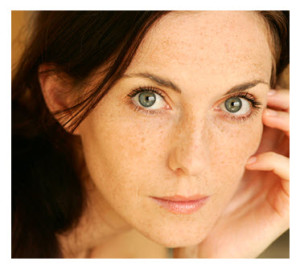For some of us, the Highly Sensitive Person is a rare find, a gift, a treasure. Yet loving the Highly Sensitive Person is a challenge to those who are less sensitive, even if they, too, fall somewhere along the HSP spectrum.
 Of course, if you put two HSPs together, you may encounter another dilemma, and an old joke comes to mind:
Of course, if you put two HSPs together, you may encounter another dilemma, and an old joke comes to mind:
How do two porcupines mate?
Very carefully.
Those two HSPs in love… Is the prize of a presumed profound emotional experience worth dealing with inevitable dramas?
Loving a Highly Sensitive Person — Too Much Work?
Ah… vulnerability, touted as the key to trust. The more sensitive among us may feel our vulnerability (and everything else!) with greater frequency, more intensely, and in more prolonged fashion; we are desirous of exposing our deepest selves.
We anticipate that this degree of trust will be handled with kid gloves. We interpret comments, gestures, and actions — or their absence — in ways that may not have been intended. We take offense more easily, we worry about others and their feelings often before our own, and we learn (if we can) to separate issues in the workplace from our private lives.
After all (we tell ourselves), an offhand remark is not intended to provoke or to hurt; everyone is not careful with words, nor capable of imagining that someone might take offense. Don’t we all fill air time with nothing much when we’re tired, when we hit an awkward silence, or when we might be attempting humor and it falls flat?
But as an intimate partner? To one who isn’t highly sensitive, does the requisite tip-toeing become too draining? And what about a double dose of sensitivity when two HSPs pair up? Is this a perfect storm or a potentially perfect match?
If I use myself as an example of an HSP, looking back on the occasional relationship with another HSP, I recognize the spectrum at play and my “learned” ability to be less sensitive on any number of topics. My sensitivities were, at times, far fewer and far less intense than my partner’s. Certainly, far less frequently aired. Even so, at a certain point, it all became too much — too time-consuming, too complicated, too tiring.
I also recognize the existence of other character factors at play that worked against the relationship — insecurity, narcissism, manipulation. Did those factors cause the emotional intimacy to erode? Did my own elements of being highly sensitive impede my ability to clearly see those behaviors and get out sooner? Absent those destructive traits, would the very richness that I so enjoyed initially have continued?
When it comes to the attentiveness required when you love a Highly Sensitive Person, I imagine we would all answer the question of how well we can manage it differently; in relationships as in other matters, we evaluate pros and cons, and as long as the pros outnumber the cons, we stick.
More on How HSPs Navigate the World
This Lifehack list of 25 habits of HSPs had me nodding in recognition at the inclusion of empathy, compassion, intuition, feeling profoundly, and dealing in details in ways that others may not.
This same post tells us that Highly Sensitive People stand up for what they believe in, a trait that may isolate them further in some ways, as:
When they have a thought, a vision, an idea, or a feeling, they will voice it, even if they may be standing alone. However, they can sometimes feel as if they are too different from the rest of the world and become disheartened at times, when they see how insensitive some people can really be.
A rollercoaster of moods, potentially sparked by seemingly insignificant things, can be a challenge for their partners.
Note, too, that the exquisite attentiveness to people, animals, and the world in general may leave them — us — more prone to depression.
In my experience, conflict is another relationship challenge for the Highly Sensitive Person, and if two HSPs butt heads or simply misunderstand each other, wounds may cut deep and quickly, and one or the other will have to be able to build back the bridge to mutual understanding. Couple this with simultaneous conflicting desires — to be emotionally open, and to communicate all the subtleties of one’s affective terrains, while not rocking the boat — we can see how easily issues can flare.
Any approach to disagreement or conflict with the HSP demands careful communication (and all that “accessible” empathy) as both individuals, hopefully, will be equally intent in putting the pieces back together again.
Does a Highly Sensitive Person Want Too Much?
 This Huff Post column on relationships with HSPs agrees, repeating the point that highly sensitive people feel everything deeply, that overstimulation can become an issue to contend with, and conflict is often a problem.
This Huff Post column on relationships with HSPs agrees, repeating the point that highly sensitive people feel everything deeply, that overstimulation can become an issue to contend with, and conflict is often a problem.
Since conflict is an inevitable intruder in any relationship, are there specific skills to assist when misunderstandings come to call?
The article reminds us that addressing issues from a positive standpoint is a good start. For example, most of us understand that we should avoid words or tone that seem accusatory or judgmental. This helps soothe ruffled feathers — whatever the nature of the relationship.
This column at Psychology Today addresses the HSP who is seeking love and a degree of intimacy that many might not be comfortable with. Deborah Ward writes:
… HSPs are often romantics, idealists and nurturers… We want to help others… Our empathic nature means we put ourselves in other people’s shoes all the time, usually without even realizing we’re doing it.
Our natural empathy, warmth and compassion draws others to us. At the same time, we are drawn to them because we cannot ignore their feelings, or their cries for help. But that’s where things can become challenging for HSPs… We cannot walk away.
Indeed.
As for two HSPs together, consider this post on two empaths in a relationship. It’s an interesting read, and highlights the fact that empaths tend to blame themselves when someone else (around them) is upset.
While self-blame suggests insecurity, this isn’t necessarily the case. I have known extremely independent, generally secure, and self-aware HSPs who do indeed, because they have their eggs “all in one relational basket,” find themselves more likely to self-blame. With or without a coterie of friends to soothe, salve, and provide feedback, the HSP is certainly likely to be more wounded by a partner’s remarks — especially if he or she is also an “empath.”
Looking Back Through an “HSP Lens”
Clearly, I am offering “anecdotal” examples when I share my own experience. Still, isn’t that experience of some value?
 I can look back at my love affair with one HSP in particular and view it as deliciously verbal, textured, and emotionally intimate. He (like me) operated at a high degree of independence, had learned not to fall into self-blame over others’ issues, yet retained the natural capacity to fully inhabit another’s feelings. My feelings. He was a patient, thoughtful, deeply caring partner. And I hope I gave as good as I got.
I can look back at my love affair with one HSP in particular and view it as deliciously verbal, textured, and emotionally intimate. He (like me) operated at a high degree of independence, had learned not to fall into self-blame over others’ issues, yet retained the natural capacity to fully inhabit another’s feelings. My feelings. He was a patient, thoughtful, deeply caring partner. And I hope I gave as good as I got.
In stark contrast, I can compare that relationship to another with a man who was more classically “male obtuse” — avoidant of emotionally charged topics I might raise, and non-communicative on any substantive emotional dimension. Oddly, he wore his own emotional neediness on his sleeve.
Where I do agree with the article on two empaths loving each other is here:
… Carrying the detrimental energy that you pick up from your partner is a sure way to lose your own identity, miss your higher purpose, and create more personal suffering and relationship misery than is necessary. Don’t be afraid of setting boundaries with your partner who is not pulling his or her weight in this double-empath relationship.
Likewise, I find truth in the following, which I have lived more times than I can count, as an “empath” by nature, confronted with the trials or troubles of a loved one:
… We fear rocking the boat or making things worse, so many times we absorb our partner’s emotional energy into the cells of our body…
As might be expected, to rubberstamp individuals with any label, HSP or other, and thereby assume that we can “know” them, is to undercut the complexity of our personalities, the coexistence of any number of psychologically potent “conditions,” and the uniqueness of our experience.
That said, when in a relationship with a Highly Sensitive Person, it seems the experts and anecdotal experience would agree: Unless we speak carefully and consciously, choosing words with the utmost clarity and taking in the “metadata” of voice, gesture, facial expression — we are bound to carry a weightier load than if not involved with an HSP. Then again, just imagine the prize that awaits.
I welcome your thoughts.
You May Also Enjoy
D.A.,
Your essay left me wondering if you might be at that curiosity stage of tipping your toes in to test the warmth or chills of the beginnings of a possible new relationship while learning more about your deeper inner self along the way?
TD,
I’m preparing to consider dipping a toe in the possibility of considering dating… 🙂
Mostly, I wake up thinking about all kinds of things, then jot them down to be developed into more thorough pieces of writing. This is one of the subjects I have been thinking about for a while. There is surprisingly little available on this subject, especially as concerns two HSPs as a couple.
D.A., I would enjoy more to read on people’s experiences of dating in today’s time from all ages, genders and personality types. You may have watched the new TV show “First Dates” produced by Ellen. It is entertaining as well as informative on behaviors. Of course, it doesn’t get into the conversations of labeling of personality types in the selection dating process.
I would agree with Robert that it would not matter if pairing HSP, mixed or non.
Understanding of myself, leaning more towards interversion and perhaps more sensitive, more emotional, and more willing to empathize and listen to others share their stories, I often feel drained. I would say I definitely attract more HSP people in conversation, yet I chose to date, develope relationships, and even marry the more logical (less feeler, less emotional) personality types. Perhaps it is based in my desire to feel less drained and more balanced. Yet overall, this would not at all define or deter my willingness to date HSP, because I have. For me there are more important topics of discovery to learn about new acquaintances, hope of possibilities in dating; shared interest, values, goals and family structure. An open heart to love, I think is key.
I look forward to reading more of your discovery and your readers’ experiences in dating. Being single, the topic of dating is of interest. ?
I tend to agree with Robert as well, TD. And thank you for the input on other dating-related relationship topics. Much appreciated!
It is obvious that D.A. and the writers of the linked articles know whereof they speak. I agreed emphatically with all of the material, especially regarding the need to erect behavioral and emotional boundaries.
The only place I would differ is I see no reason why two HSP’s could not be a better pairing than an HSP and a non- HSP, or two “nons”. This assumes of course that both are self-aware and emotionally intelligent, which admittedly is a lot to assume. There are many people who are reactive, but are not emotionally developed, HSPs, or empathetic. But I would expect real HSPs to generally rate higher in that regard.
I would much rather be in a relationship with someone who understands from personal experience the fragility of relationships, and how words and actions can hurt, than with someone who doesn’t understand the damage they do casually. When both parties share an understanding of relationships and behavior I would expect them to be more aware of hazards, less likely to encounter trouble, and to have better tools for recovery. Plus the couple has more shared basis for relating, with more depth possible. The relationship would be seen as more special, and worth the effort to preserve.